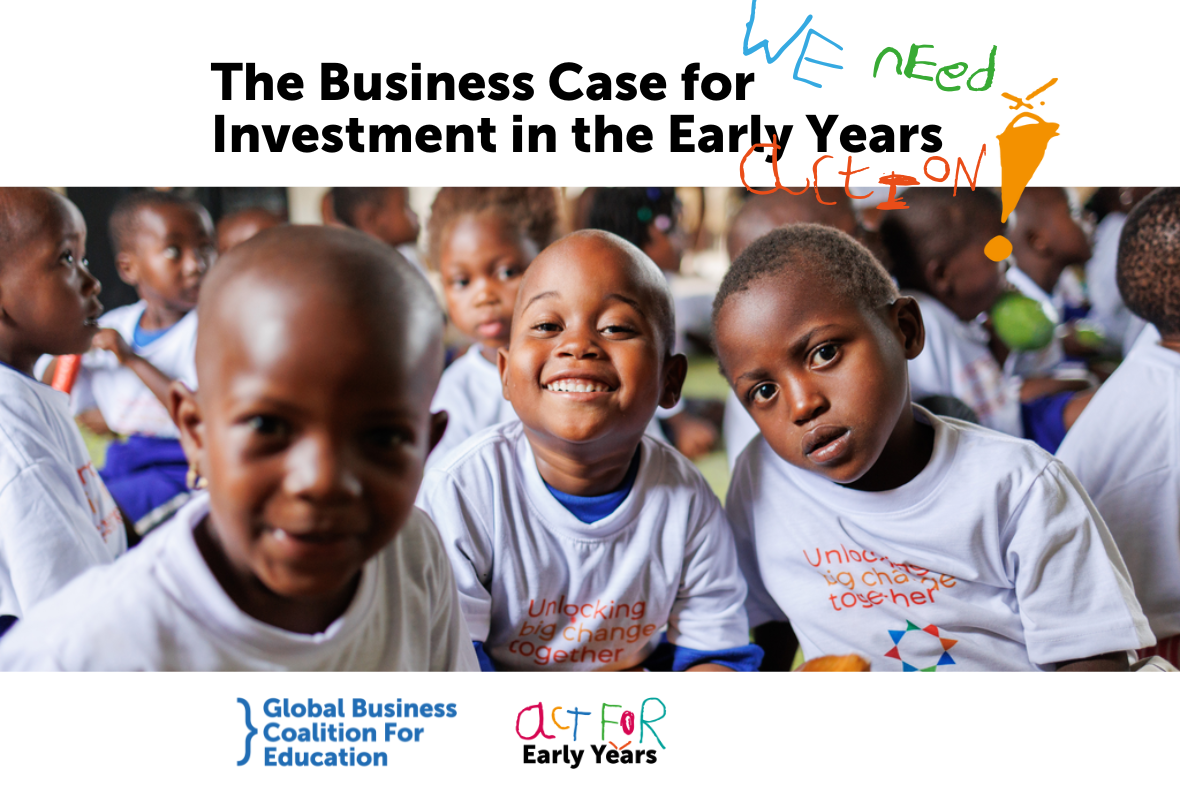The Business Case for Investment in the Early Years

Report
Our report, based on research across the U.S. and around the world, makes an urgent case: The business community needs to broaden its focus to the youngest children to help transform not only their education, but their health, employability, and all-around contribution to their communities and the wider world.
Executive Summary
Supply chain breakdowns. A shortage of skilled workers. A widening gap between rich and poor. What’s a common threat behind these recent headlines? How can businesses increase prosperity and stability?
You’ll find hints in the playrooms of homes and nursery schools all around you: Dozens of countries are reeling from an early years crisis. For children ages 5 and under, daycare is scarce, unaffordable, or woefully inadequate. Preschool education is not always present and often fails to meet the most basic standards, especially for the vast majority of families without high incomes.
The skyrocketing cost of childcare is particularly bleak in the U.S.: More than a quarter of parents say they have quit a job or dropped out of their studies to avoid childcare costs, according to a global survey of over 7,000 parents and childcare workers. Meanwhile, the U.S. Chamber of Commerce Foundation reports that $3 billion in revenue is lost annually due to employee absenteeism due to childcare breakdowns.
Even as Environmental, Social, and Governance (ESG) performance faces political headwinds, stakeholders are demanding that businesses achieve better financial and social outcomes. Investment in the early years is key. This groundbreaking report shows the urgency of the crisis for all of us: executives, employees, investors, and taxpayers. When young children suffer, businesses lose valuable employees, economies lose productivity, and tax revenues fall.
Consider two related points: The World Bank says nearly 350 million children lack quality childcare around the globe. Meanwhile, more than 85 million jobs in the world could go unfilled by 2030 because of a lack of skilled people, according to a Korn Ferry study.
What can you do?
• Adapt the lessons of our short case studies. You’ll meet an apparel company that provides daycare for parents, whether they work from stores or their kitchen table. You’ll learn about a business that’s owned in part by a foundation that focuses on bringing the benefits of learning through play to underprivileged children. You’ll find a retailer that recycles toys every month to spread joy while easing the burden on landfills.
• Make the early years central to your sustainability and ESG efforts. We show you related metrics from the leading rating agencies that apply to supporting the early years in the workplace.
• Build global momentum for the early years across businesses, consumers, and government. In these pages, you’ll see our action plan, the #ActForEarlyYears campaign – actforearlyyears.org – and much more.
And, of course, you can act on the information in this report by joining the Global Business Coalition for Education and our movement of businesses committed to ending the global education crisis.
